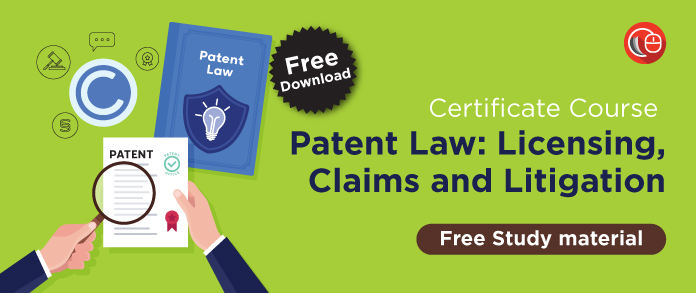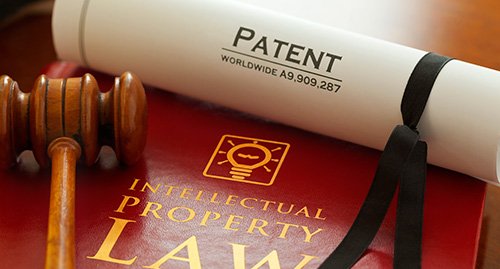This article is written by Asif Iqbal, from Centre for Juridical Studies, Dibrugarh University, Assam. It deals with the negotiation of TRIPS and features in a distinguished manner and whether this agreement provides a gateway to the global economy. The amendments made in the Patents Act by India after acknowledging the TRIPS agreement.
Table of Contents
Introduction
The scope of the patent system is to implement backing to research and methodology; which eventually prefer the innovative brain. It wanted to support the creation of inventors by providing them with a monopoly from any sort of commercial exploitation; maintaining the flow of inventions. This system will increase the potential of such countries with the potential to provide utility products through qualitative and quantitative through the production of new methods for goods and services. It will improve the model of living and encourage systematic sturdiness. The purpose following the procedure remains to execute the privilege of creators by trading or practising their inventiveness. The primary postulate of Patent is that the commodity is required to be innovative and serviceable.
The negotiation of Trade-Related Aspects of Intellectual Property Rights (TRIPS) acknowledged being a complete treaty came into force on 1st January 1995. The domain of the covenant covered by this agreement is copyrights and related rights, undisclosed information, design for industries, protection of multiple plants and patents. The feature of this agreement distinguished in the following manner:
- Standard
- Enforcement
- Settlement of Disputes amongst nations
This agreement tries to cover the major areas for intellectual property rights, the obligation shall be upon nations to provide protection. They define the protection i.e. subject-matter, the minimum duration for protection and exception to Rights provided to nations. The relevant provisions to this agreement are present. The agreement is related to the Convention of Paris and Berne; the obligations are more on situations where pre-existing agreements were silent.
We find the relevant provisions of this agreement under Article 2.1 and 9.1 of this treaty; sometimes referred to as Berne-Paris Convention. Primary customs as a common approval on the International country and nations are granted in Article 3, 4 and 5; these are obvious upon sections implemented in the Agreement for Intellectual Property Rights. Introducing the TRIPS Agreement confers the purposes of Uruguay Round Negotiation and customary laws discussed in it.
The treaty of TRIPS states in Article 9.2 to the strength of Copyright will spread exceeding character will not bind to concepts, assurance, or methods of operations and others which is necessary.
India’s journey of patent laws through TRIPS compliance
There has been a moving development in the domain of Intellectual Property Rights in India; modifications are noticeable in the legislation enacted by the legislators. India along with other emerging nations graced a signatory to the treaty of TRIPS of the World Trade Organisation (WTO) in 1995 with a matter that agreement will allow free flow of trade, investment and eliminate the restrictions enduring in the norm of Intellectual Property.
To comply with the norms of TRIPS; India amended the Patents Act 1970 three times, the year 2002 amendment added ‘exclusive marketing rights’. The patent protection extended to 20 years; it was the year of 2005 was amendment took place for the third time. Subsequently, the amendment caused raising questions by the members belonging to communities of science, technical and business.
The Exclusive Marketing Rights (EMR) presented in 1995, based on the subject-matter of Article 65 and 70 of TRIPs, however, are incompetent to secure help from legislators and they lapsed. A case filed against India by the USA and European Union in the Dispute Settlement Body (DSB) and got an inopportune decision from the body. This created India to proceed with the first reformation which interjected EMR for five years or to a range where a commodity expelled or affirmed for a patent. The first amendment aimed to exclude patents on products of foods, medicine and drugs and this happened for being a signatory to the treaty. The Act for patents passed in 1970 excluded many products from getting patents, EMR based on foreign patents were given after 1st January 1995.
An applicant to EMR will have to meet pre-conditions provided in the Patents (Amendment) Act, 1999 of which an applicant will need to have a valid patent for pharmaceutical products granted after 1st January 1995, Rights in Marketing in countries which are a signatory of TRIPS, application for the patent product need should have made in India and approval of marketing taken within the territory of India. The first three stipulations based on the agreement signed in TRIPs and the last condition inculcated to get the approval from India drug regulatory. The Act gave protection to a foreign pharmaceutical company and permitted stronger research within India.
 TRIPS the gateway to the global economy
TRIPS the gateway to the global economy
After the seven years of negotiations which took place in Uruguay led to the existence of TRIPs; agreement plays an important role in the ecosystem for the economy. The agreement includes several developing countries as signatories and the aim was to restrict the intellectual administration at the global level. The Organisation for Economic Co-operation and Development (OECD) perceived the agreement as forceful but the upcoming era allowed the rules for protection being made by WTO, a secondary role played by WIPO.
The latter given the responsibility of the administrator, technical help and forum which could amend rules. The countries belonging to OECD took the agreement as an opportunity to claim for an entitlement for innovation constructed in a shape of IPRs protection. It was understood during a round-table negotiation in Uruguay that the interests of developing countries will get impacted due to TRIPs. The bargaining made with the developing countries was to reduce the agriculture export subsidies.
In 2002, the Government of the United Kingdom formed a commission which scrutinized the benefits received by poor people and developing countries due to IPR and areas which were looked at were Health, Agriculture, Traditional Knowledge, Copyright, Software and others.
The agreement allowed R&D technologies used by the poorest countries to meet their needs, trading allowed the expansion of IP sensitive goods, to support the market there was a transfer and diffusion of International Knowledge and the benefit for consumers improved along with their guarantee to product origin. The perpetual flat expense for transit and dissimilar transmission technologies which expedite this evolution regarding erudition have implied essentials for the coordination of globalized stock compositions.
The command concerning technologies no extends viewed a public asset; attached to multinational operations which determine the composition and utilisation amidst corporate advantages. The settlement rendered the first endeavour toward collective activity in the sphere of worldwide IPR; its follow-up should direct upon a policy-based touching universal help, which resembles some fitting backlash through globalization concerning prosperity including technology.
Public Health Protection
In the developing world there occurred deaths of up to 90 per cent of total deaths in the world and these deaths occurred in South America, Asia and Africa which related to HIV/AIDS, Respiratory infections and Tuberculosis (TB). There are millions of people; who are suffering from HIV but don’t have access to medicines to treat them. The reason behind the lack of facilities increased to a manifold, the barriers for treatment is the higher prices on drugs imposed by companies. The stronger intellectual property increased the prices for prohibitive drug prices and attempts by developing countries to reduce the amount got pressure from industrialized countries and multinational companies. The minimum standard for protection of Intellectual property including patents imposed on pharmaceuticals received criticism as the treaty of TRIPs caused an increase in prices of drugs in the market. There are safeguards which are available in the agreement to remove the negative effects upon the level of protection upon drug prices. It is not clear from the agreement which countries can use the safeguard because of the barriers to get access in medicine.
In 2001 in Doha, Qatar adopted a declaration titled as TRIPs and Public Health under the Ministerial Conference of WTO. The resolution specified that the Government of different nations have the power to protect public health as they have self-determination. There were many public health advocates; who embraced the resolution taken by ministers in Conference because it prelates public health over private intellectual property. One of the important cases under Public Health Protection was Big Pharma vs. Nelson Mandela; the dispute for trading in the nation of South Africa. A suit brought against the Government of South Africa by Multinational Pharmaceutical Companies, which were 39 in number along with the South African Pharmaceutical Manufacturers Association (SAPMA). The allegation made by Pharmaceutical Companies concerned the Act of Medicines and Related Substances (MRS) which as per them violates the basic principles of TRIPs and the Constitution of South Africa. The amendment of the Act comprised a framework which provides affordable medicines within the territory of South Africa. The provision of this amended Act was to substitute generic with off-patent medicines, imposing prices on medicine transparently along with the import of patent medicines.
The United States of America came to support Pharmaceutical companies to impose pressure upon the Government of South Africa against the Act; received the support of the European Union to restrict the benefits which it received through trading and warned them to face severe sanctions. The Presidential Candidate for Democratic Party; Al Gore got confronted with activists of AIDS, who highlighted the profound positive part of the amendment in the Act which embarrassed him. Later, he received crowds during his election campaign which made an allegation of his involvement in the dispute with South Africa and killings of kids in the African continent. The policies against South Africa changed in 1999; the case reached court in 2000. The multinational companies did not receive the support from their country and the case was eventually dropped in April 2000 as they realized their weak position and strong International outrage.
Last, we learned two issues after this case and they were a flexible interpretation of the Treaty of TRIPs; during the public health use by developing with no challenge. Second, there was an involvement of industrialized countries in developing countries to defend the interest of multinational companies.
TRIPS in the Indian Patent Act
The legislation of patent was brought by imperialist Britishers as they ruled over India over a century. The influence of Great Britain started from the early 1600s with receiving permission from Queen Elizabeth I under “Governor and Company of Merchants of London trading into the East Indies”. Further, the responsibility of the company was taken over by the Queen after the battle of 1857; considered as the first battle for Independence. We can trace the enforcement for the rule of patent law from 1856 onwards; it gave the privilege to inventors up to 14 years. There was a new law enacted in 1859 which gave privilege to inventors to use and sell the invention in India and it aimed to secure control over the then undesignated or undefined territory of India.
There were two legislations which got enacted; the Patents and Design Protection Act & Protection of Invention Act which was passed in 1872 and 1883, respectively, consolidated as Inventions and Designs Act 1888. Before the Independence of India, the Britishers brought legislation in the category of goods protection; known as the Indian Patents and Designs Act 1911. This law brought an administration for a patent in India; its functions performed under the supervision of Controller of Patents. The terms which were allowed for filing date were for 16 years and it was extended for an additional seven years. This legislation was removed after the Independence in the year 1970 after enactment of Patents Act by the Parliament of India.
The transmutation concerning India’s protection legislation under some multi-phased style that resembled three alterations upon this Patents Act, 1970. This permitted claimants to register pharmaceutical output license entreaties. Claimants moved to give exclusive marketing rights (“EMRs”), ruled upon specified contingencies and warehouse these outcomes to a term up to five ages of this time from the award.
The following addendum on this 1970 act remained enacted inside 2002. Aforementioned alteration produced this within conformism among TRIPS approaching various matters, since this fitted toward a twenty-year copyright duration, a repudiation from this freight regarding evidence concerning method protection transgression, including alterations over obligatory licensing necessities. Exemptions from implementing pharmaceutical products for a patent until the year 2005. Initially, India tried to implement the facility of mailboxes and EMRs which should have been granted as per the order of the President; this rule didn’t pass in the Parliament of India. This led to the USA using the dispute resolution mechanism of WTO against India as they could not bring mailboxes and EMR. The failure of India discussed in WTO’s Appellate Body in 1997 as they didn’t comply with the Treaty of TRIPs as Article 70.8(a) ignored as it establishes a line “a means” which preserves novelty and priority to the pharmaceutical product application for protection. They passed the amendment in 1999 of March, the framework brought the composition of mailbox complied with the requirements of TRIPs; it ended in December 2004. The amendment of 2002 brought various changes; as per the rules provided in the treaty of TRIPs as definitions like invention and inventive step, algorithms and traditional knowledge. The amendment brought three grounds provided to seek a compulsory patent license and abolished the concept about the license of Right.
A petition filed by Novartis in 2006 in the High Court of Madras against the rejection of their application for the license for the drug of a beta crystalline form of imatinib mesylate under Section 3 (d) of the Patents Act by Patent Controller. The argument which was brought by the Company was the rejection violated Article 14 of the Constitution of India as the Act provides discretionary powers to controllers which led to discriminatory results. The issues divided by the Bench of the High Court of Madras and Intellectual Property Appellate Board (IPAB); The judgment heard by the appellate body which decided against them.
The bench examined three issues:
(i) Whether the Indian court has a jurisdiction to decide upon International treaties?
(ii) Whether Section 3(d) of the Patents Act is consistent with Article 27 of TRIPs?
(iii) Whether Section 3(d) violated Article 14 of the Constitution of India?
The court decided they do not have jurisdiction on the issue raised by the Company because the treaty is based on an International Convention. The third issue brought that Section 3(d) doesn’t violate the principle of Article 14 of the Constitution of India. They ended by saying that the Government of India will have the duty to provide good health to its citizens by providing easy access to life-saving drugs.
Comparison of TRIPS compliance of India with other countries
The recommendation addressed through these developed nations concentrated superimposed the strength concerning Intellectual Property Rights. The Council of the European Communities installed a European Agency for the Evaluation of Medicinal Products (EMEA) that furthermore established forward methods concerning that Commission of the European Union; midway empowered retailing consent concerning some social including veterinary remedial commodities following an affirmative experimental evaluation through the EMEA. The exceptional brand condition exists strenuously resisted through the pharmaceutical industry. Areas for adversary imply the provision remains inimical over these directives concerning this EMEA, does hostile over European Union sanctioned constitution, against so holdings regarding this Court of Justice of the European Communities, antithetical toward that Identity tag statutes, is inimical to Council Directives is profoundly unrealistic.
Section 3(d) of the Patents Act specifies that an insignificant development of a distinct matter which continues to the known will not result in the augmentation of observed productiveness of that matter. The simple use of a recognised material; learning shall not hold as originality to get the permission of the copyright. The new Act for a Patent is upon the principle of ” exhaustion of Patent Rights” which says that once an investor sells their invention will lose the right to control the sale of the invention. The aim of this principle contains an interest to provide medicines at lower-rate, although this principle isn’t in developed countries. Moreover, Article 6 of TRIPs agreements doesn’t mention much about the exhaustion as it says the issue concerns the exhaustion of intellectual property rights. The principle of inherent anticipation used by the USA & United Kingdom to deal with trivial modifications in pharmaceutical patents.
Recommendations
- The confession regarding specific beginning and realm regarding this source of the organic supply.
- An improvement regarding this TRIPs Agreement to counter systemic struggles; including the CBD stemming of that implementation concerning TRIPs.
- An antecedent notified acquiescence by permission regarding jurisdictions under these appropriate governmental administrations.
- The just and impartial benefit-sharing following each applicable governmental administration.
- Conventional producers entitled to store including trade grains that people must have accumulated.
- The Indian Patent Act obliged to amend in addressing impairment of Intellectual Property Rights an area toward abolishing this protection.
Conclusion
India has a distinct demand for consumerism along with holding a store towards professional, managerial and entrepreneurial abilities. The nation can convert as a haven for projects in analysis and improvement onward with assurance proffered to copyrights. The administration of Government expects to have a reflection towards globalisation; moderately than isolation. The standard and norms to provide a license to goods or invention require as per the treaty of TRIPs and outline to defend the heterogeneity of the ecosystem.
References
- https://shodhganga.inflibnet.ac.in/bitstream/10603/59930/13/13_conclusion%20and%20recommendations.pdf
- https://mckinneylaw.iu.edu/iiclr/pdf/vol8p69.pdf
- https://www.who.int/intellectualproperty/topics/ip/tHoen.pdf?ua=1
- https://www.who.int/healthsystems/topics/health-law/chapter10.pdf
LawSikho has created a telegram group for exchanging legal knowledge, referrals and various opportunities. You can click on this link and join:
 Serato DJ Crack 2025Serato DJ PRO Crack
Serato DJ Crack 2025Serato DJ PRO Crack










 Allow notifications
Allow notifications


